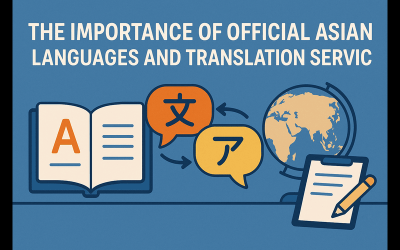In today’s global economy, financial transactions span across borders. Understanding financial statement translation becomes essential as businesses extend their reach into international markets. Without accurate translations, even the smallest error could lead to costly consequences. Let’s dive into why getting it right is so crucial.
What is Financial Statement Translation?
Financial reports contain sensitive information. A translation error could easily lead to misunderstandings, misreporting, or legal complications. For example, a small mistake in translating revenue figures could impact tax filings or investor decisions. Inaccurate translations can also tarnish a company’s reputation and raise red flags among regulators. Hence, precision is critical.
Certified Translation Services
Get your documents translated and certified by a professional translator in 120+ languages with 24 hour delivery.
Get a Quote
Key Challenges in Translating Financial Statements
Translating financial statements goes beyond simple language translation. The financial sector is filled with technical terms that require expert knowledge. Different countries may use various accounting standards, and these must be considered when translating documents. For example, the International Financial Reporting Standards (IFRS) differ from Generally Accepted Accounting Principles (GAAP). These differences complicate translation, making it essential to work with professionals who have experience in financial language.
Why Accuracy is Non-Negotiable
Accuracy in financial statement translation isn’t just important—it’s essential. Financial documents influence major decisions, from investments to mergers. The people reading your translated statements rely on this information to make educated choices. A slight mistake, such as converting currencies incorrectly, could result in massive financial losses or the wrong decisions being made.
How Professionals Ensure Quality
Professional translators specializing in finance know how to handle the nuances of financial language. They understand the specific terminology used in different countries, and more importantly, they’re aware of the consequences an error could have. These experts also have experience with accounting standards, ensuring that every aspect of the document is translated accurately and appropriately.
What to Look for in a Financial Statement Translator
When choosing a translator for your financial documents, ensure they have a strong background in accounting or finance. They should also have a track record of working with international companies. Don’t shy away from asking for examples of previous work or references. A translator who knows the ropes can deliver high-quality translations that maintain the integrity of the original document.
How Translation Affects Financial Reporting
Accurate translations directly affect your ability to report financial data to international stakeholders. Investors and regulators need precise, reliable data to make informed decisions. Financial statements are a reflection of your company’s financial health, and any discrepancies could lead to scrutiny or loss of trust. With correct translations, you build credibility and confidence with your audience.
Professional Translation Services
Get your documents translated and certified by a professional translator in 120+ languages with 24 hour delivery.
Get a Quote
The Impact of Language Barriers on Global Business
In a global market, breaking down language barriers is key to success. Financial statement translation ensures that your business can communicate seamlessly with partners, clients, and investors, no matter where they are. Without clear communication, misunderstandings can occur, and opportunities can be missed. Financial transparency is the foundation of trust in any business relationship.
Why Translation is More Than Just Words
Financial translation is more than a direct word-for-word conversion. It’s about making sure the financial concepts, formulas, and overall context make sense in the target language. Numbers don’t always translate the same way across cultures, so a professional translator must also understand local financial regulations and market conditions.
Choosing the Right Translation Service
 Rana Maalouf
Rana Maalouf

